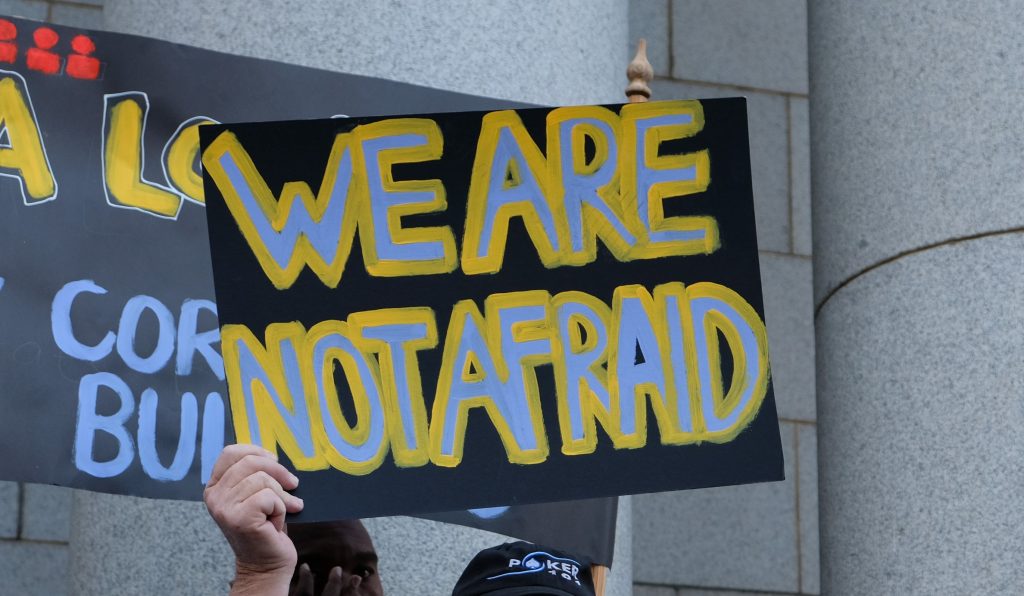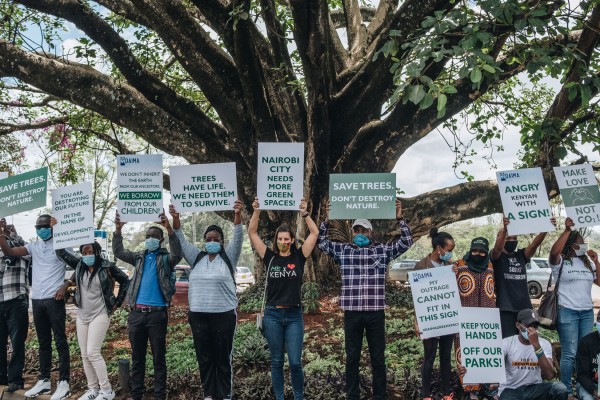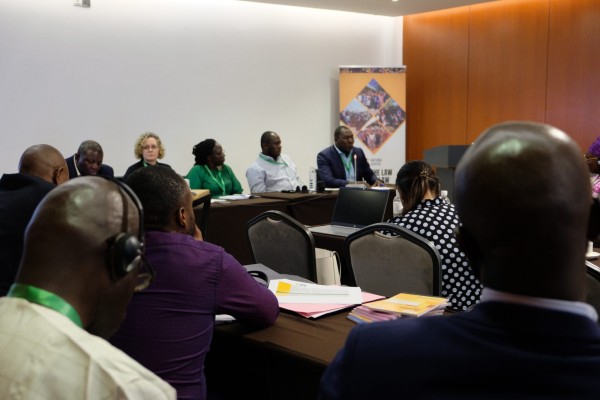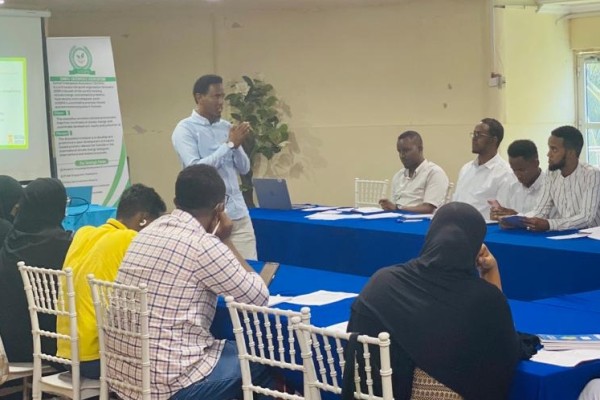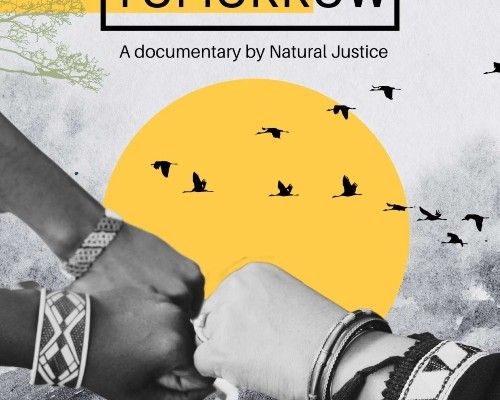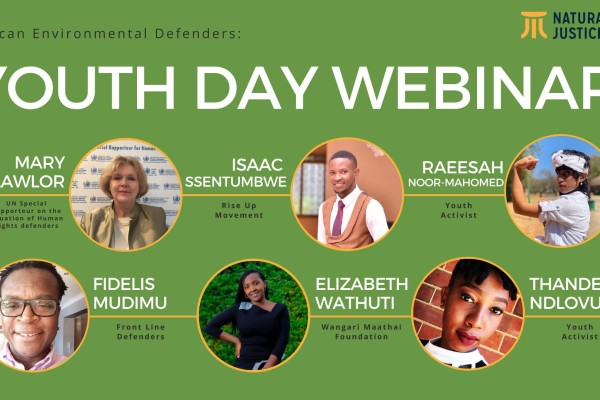Organisations from around the world working with Indigenous Peoples, local communities and Land and Environmental Defenders, including women and girls in all their diversity, have prepared a joint NGO briefing for the UNFCCC COP28 on the need for increased recognition and protection of Land and Environmental Defenders (LEDs).
Leaders of governments, academia, media, and multilateral institutions must create a space where they can dialogue formally and directly with LEDs who are on the frontlines of the crisis and with civil society organizations that support them. Such an avenue for dialogue can play a vital role in providing key stakeholders with the tools they need to prevent violence against LEDs, enhancing their protection, and enabling a more inclusive space for their participation in decision-making on environmental and climate issues.
The briefing calls for three key recommendations to advance a human rights-based approach to climate action and climate justice:
1. The guarantee of meaningful engagement of LEDs in climate policy making;
2. The prioritisation of land rights and tenure security for LEDs; and
3. The recognition and protection of LEDs in the Global Stocktake and other key UNFCCC COP processes.
The joint NGO briefing recognises the plight of LEDs as people not only on the frontline of climate crises and loss and damage, but also risking their lives advocating for climate justice, opposing fossil fuels and false solutions, and defending their right to a clean, healthy and sustainable environment.
Without freedom of expression, association, privacy and peaceful assembly, LEDs working on climate justice are increasingly targeted with violence, harassment, and criminalisation, making them the most vulnerable group of human rights defenders. Attacks against LEDs have shown an increase over time.
Other pernicious tactics are used against LEDs including criminalisation, legislation to prevent freedom of assembly, Strategic Litigation Against Public Participation Lawsuits (SLAPPs), online and offline harassment, smear campaigns, surveillance, and sexual and other forms of gender-based violence to deter dissent and attack groups and communities opposing climate-damaging activities and industries.
The joint NGO briefing further recognises that Indigenous Peoples and local communities are the most visible and vocal LEDs due to their proximity to the crisis, as well as their dependence on land and nature. They are therefore the most targeted for threats against them.
As the COP28 starts this week, the NGO briefing recognises that the negotiating spaces at the UNFCCC meetings have, in the past, been characterised by restricted access, participation, and freedom of assembly. COP28 provides an opportunity for state parties, the COP presidency and UNFCCC secretariat to take actions to safeguard the fundamental rights for LEDs and prevent reprisals against LEDs.
Three Key Recommendations
- Civic space and meaningful participation of LEDs in climate policy-making must be guaranteed, and their role and human rights in advancing climate action should be recognised and protected.
This recommendation calls for the urgent need to recognise the role of LEDs in addressing climate change; the protection and expansion of LEDs’ rights including freedom of association, assembly, expression, and privacy; and their meaningful participation at both local and multilateral levels to achieve climate justice. An enabling environment for civil society and LEDs is essential for addressing the climate crisis and ensuring a just transition. - Indigenous and local LEDs’ land rights and tenure security must be prioritised in national and international policies.
This recommendation recognises that LEDs actively advocate for the protection of their land and environment, resulting in violent acts against them, including gender-based violence. By prioritising land rights, especially for women and girls in all their diversity in their communities, it is more likely that women LEDs will experience less violence and harm in and outside their communities, and that their leadership in climate action will be supported rather than suppressed. - The Global Stocktake (GST) outcome must be human rights-based and provide recognition and protection of LEDs, which effectively enhances the ambition of the Paris Agreement. The GST outcome must include specific guidance on how parties should increase their intention to fulfill human rights obligations, and how to develop the next round of Nationally Determined Contributions (NDCs) by ensuring the promotion, protection, and respect of human rights.
This recommendation makes deference to the Paris Agreement rulebook, which stated that the Global Stocktake would be a crucial tool for enhancing collective ambition toward achieving the agreement’s goals. The GST must include specific guidance on how parties should increase their ambitions to fulfill their human rights obligations and how to develop the next round of Nationally Determined Contributions (NDCs) by ensuring the promotion, protection, and respect of human rights.
“We must honor and protect these courageous warriors who fight for all living beings. Their voices deserve to be heard, amplified, and supported. Together, we can create a world where environmental and land rights defenders are valued and celebrated, and their invaluable contributions lead to a sustainable future for generations. Let us stand alongside them, united in our commitment to protecting our land, defending our environment, and preserving the beauty of our planet.”
Jane Njeri Mwangi, Partnerships and Resource Mobilisation Officer, International Land Coalition Africa
‘We cannot talk about climate adaptation without first acknowledging the work of Environmental and Land Defenders as frontline guardians of biodiversity, land, and the environment. By recognizing their contributions and efforts toward mitigating the climate crisis, we would be lending greater support to the role of environmental defenders and promoting their meaningful participation in climate change dialogue”.
Tawonga Chihana, African Environmental Defenders Initiative, Natural Justice
[END]
Notes to editors:
The initiators of this policy brief will be hosting an Official Side Event at COP28 with front line defenders from across the global south on 3 December 16:45, SE Room 8, Dubai Expo City.
The NGO brief was initiated by Natural Justice; Global Witness; CambiaMO; Green Advocates; EarthRights International; Landesa/Rural Development Institute; International Land Coalition – Africa; Civicus; European Center for Not-for-Profit Law (ECNL); International Center for Not-for-Profit Law (ICNL); ELaw; Center for Environmental Concerns Philippines; Asia Pacific Network of Environment Defenders (APNED) and endorsed by more than 100 organisations.
Further reading:
- Alliance for Land, Indigenous and Environmental Defenders (2022) “Uncovering the Hidden Iceberg” https://d3o3cb4w253x5q.cloudfront.net/media/documents/2022_4_the_hidden_iceberg.pdf
- Global Witness (2023) “Annual Land and Environmental Defenders Report” https://www.globalwitness.org/en/press-releases/almost-2000-land-and-environmental-defenders-killed-between-2012-and-2022-protecting-planet/
- Global Witness (2022) “A deadly decade for land and environmental activists – with a killing every two days” https://www.globalwitness.org/en/press-releases/deadly-decade-land-and-environmental-activists-killing-every-two-days/
- European Center for Not-for-Profit Law/International Center for Not-for-Profit Law (2021) “Protecting Civic Space for Climate Activists” https://ecnl.org/sites/default/files/2021-10/Protecting%20Civic%20Space%20for%20Climate%20Activists.pdf
- European Center for Not-for-Profit Law (2023) “How is Civic Space for Environmental Defenders affected by Artificial Intelligence” https://ecnl.org/publications/where-ai-and-climate-action-meet
- Frontline Defenders (2022) “Global analysis 2022” https://www.frontlinedefenders.org/en/resource-publication/global-analysis-2022
- Human Rights Defenders Memorial Report https://www.frontlinedefenders.org/en/human-rights-defender-memorial
- IPCC (2023) “AR6 Synthesis Report” https://www.ipcc.ch/report/ar6/syr/resources/spm-headline-statements/
- CLIMAS (2023) Value-based and Human rights approaches to address Climate adaptation issues, Bonn, 5-15 June 2023
https://www.climas-project.eu/value-based-approaches-climate-adaptation/

